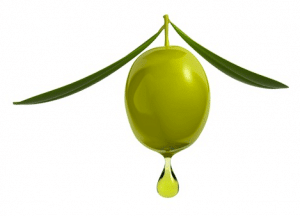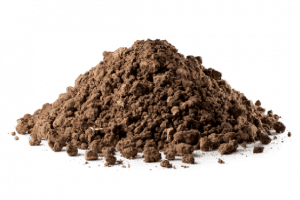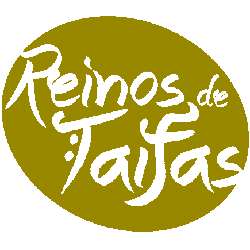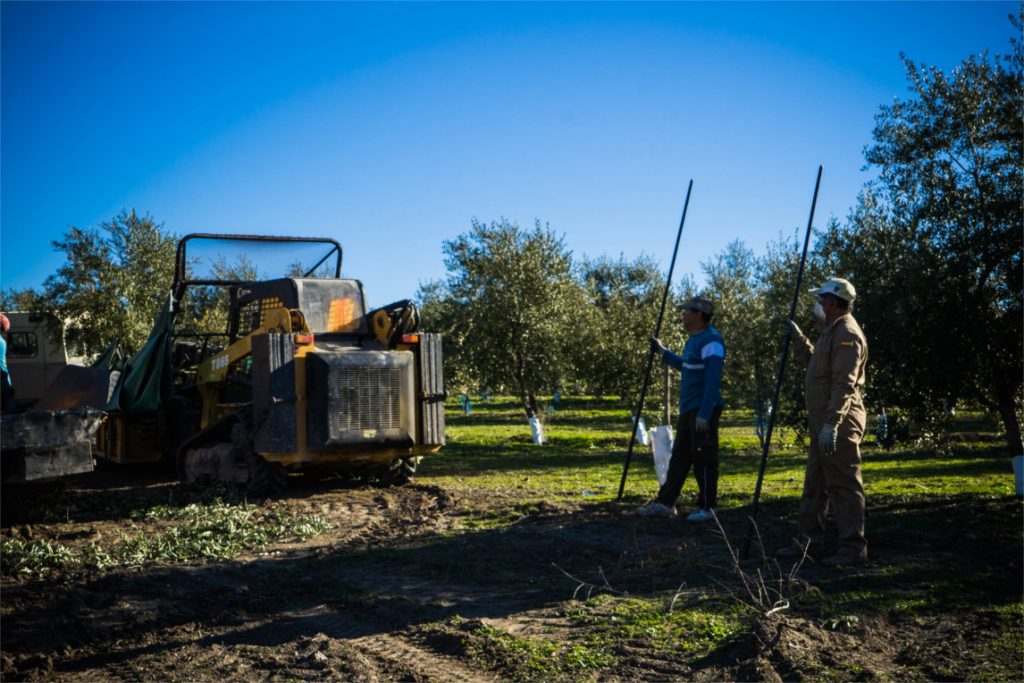HOW WE WORK
The olive oil cycle
At Reinos de Taifas, olive oil production is an annual cycle, with a year of hard work leading up to the creation of our Extra Virgin Olive Oil (EVOO). Here there is a look at each stage:
New Cycle – February
The cycle begins around February. First, we fertilise the soil to enrich it with essential nutrients. Then, we prune the trees every other year, removing old branches to ensure nutrients reach all parts of the tree.

Spring Care – March to October
As spring arrives, we protect our olive trees by applying a foliar treatment of nutrients, fungicides, and insecticides. This treatment prevents bacteria, insects, and parasites from attacking the trees. A second treatment is applied in early autumn to further support tree health.
Flowering – April
In April, the olive trees blossom, and the olives develop. In May, we apply a light
herbicide around the base of each tree to ensure the trees get the nutrients they
need.
Harvest – November to January
From November to January, we carefully harvest and mill the olives immediately to preserve their quality. The resulting EVOO is stored in optimal conditions, ensuring it maintains its premium quality—what Reinos de Taifas proudly call “Green Gold.”
Back to top
Water: A Key to Olive Production in Southern Spain
The weather in Southern Spain varies significantly throughout the year. Winters are generally mild, though occasional frost can occur from the nearby sea.
Summers, especially in Córdoba, Andalucía, bring intense heat. Temperatures often soar to 40-45°C, with nightly lows still around 28°C from July to August.
Rain is most common in winter, particularly from December to February. After that, a dry spell stretches through summer. Although olive trees are hardy and require less water than many crops, long periods of drought can still hinder their growth.
Water becomes essential during the most critical growth periods—April to May and October to November. Some farms can access water through rivers or underground streams, while others rely on rain alone. This gives rise to two types of olive cultivation: irrigated and dry-farmed.
A technique called tilling is used for dry-farmed olive trees. Tilling stirs up dust that settles on the trees, helping to reduce water loss. It also fills soil cracks caused by drought, preventing further water evaporation. However, this is only a temporary solution. In cases of severe water shortages, olive production can suffer.
At Reinos de Taifas, we grow both irrigated and dry-farmed olives. Whenever possible, we use wells, water pumps, and drip irrigation to provide our trees with the water and nutrients they need.
Since olive trees are closely tied to the weather, no two batches of olive oil are identical. That’s why each extra virgin olive oil bottle from Reinos de Taifas is unique.

The Soil: A Foundation for Growth
In the past, we tilled the soil frequently to remove weeds. Today, we use modern methods like weed trimming, which encourages grassroot growth, provides nutrients, and reduces soil erosion.
We use only EU-approved chemicals, and only in minimal amounts, for environmental and health safety. These include:
- Insecticides: Cypermethrin, Deltamethrin
- Fungicides: Copper calcium sulphate, Bordeaux mixture
- Nutrients: Iron, Boron, Magnesium, NPK, and plant-based amino acids
- Herbicides: Oxyfluorfen, Glyphosate
TESTING
After production, we conduct multiple tests to ensure the purity and quality of our olive oil:
- Taste Testing: To confirm it’s genuinely Extra Virgin Olive Oil
- Packaging Tests: To ensure quality is maintained over time
- Multi-residue Check: Ensures no trace of over 100 possible contaminants
- Heavy Metals Check: We test for heavy metals as a legal requirement, and our stainless steel storage prevents contamination.
At Reinos de Taifas, we produce the finest olive oil while maintaining the highest safety and sustainability standards.



